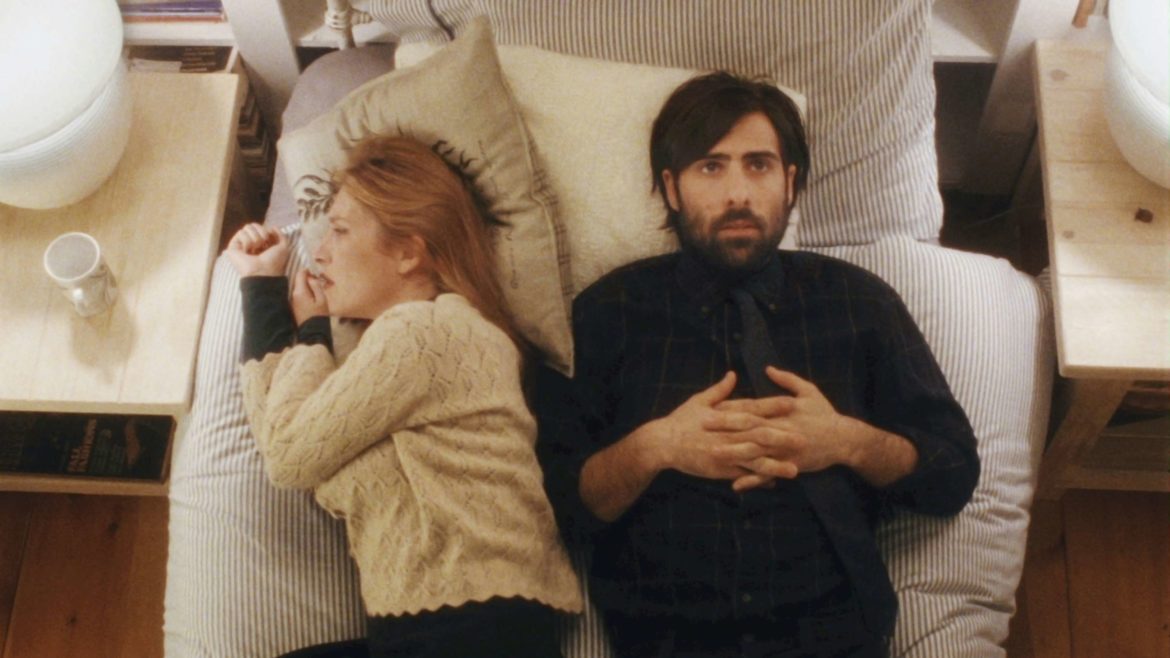The Philip addressed in the title is Philip Louis Friedman (Jason Schwartzman). He’s an author – his second book has just come out, after his first received significant acclaim. His mentor is Ike Zimmerman (Jonathan Pryce), a famous but reclusive, long-in-the-tooth writer who had tremendous success himself decades prior, but now spends most of his time playing the role of The Great Author, rather than actually writing.
They are creative geniuses, and total fucking assholes.
Egomaniacs who mistreat those closest to them, Philip and Ike process the world in a comically self-absorbed way, and don’t even notice how their behavior affects other. It doesn’t help that the rarefied worlds of literary mini-celebrity and academia enable their worst impulses, exalting them for behavior that we’d loathe from anyone else.
Fed up with the stress of New York and the commercial demands of his publisher, Philip meets Ike and promptly takes him up on the offer of something like a sabbatical at Ike’s summer home. This is advantageous, since he feels he needs time to focus and unwind, and also because he’s broke. He effectively abandons his girlfriend/meal ticket Ashley (Elisabeth Moss) without a second thought and heads to the country.
Ashley has a corollary in Melanie Zimmerman (Krysten Ritter), Ike’s alternately ignored and berated daughter – both female characters see through the bullshit the men in their life spew, and grapple with wanting to love them anyway but being rebuffed by the epic power of their smugness and self-absorption. The reality is no one could love Ike and Philip as much as Ike and Philip do.
Director Alex Ross Perry lays it on pretty thick, almost daring the viewer to find anything redeemable about his two leads. The atmosphere in the city is suffocating, and the halls of the small liberal arts school upstate (where Ike lands Philip a gig) aren’t much better. The constant is Philip’s contempt for anyone he deems lesser than him intellectually, which is to say everyone.
I could write about the plot points, but they’re really tangential to the film’s main concern: depicting the destructive forces of ego and obliviousness, and taking aim at literary or creative pretension in particular. At one point, the narrative shifts to Ashley, and it’s an almost visceral relief – “Thank god, we’re away from Philip for a while,” I said out loud, to my dog. The inclusion of this second act segment, and a stand-out monologue from Melanie later, help balance the film, elevating Moss’ and Ritter’s roles from shrew/doormat to something much more suffused with desire and melancholy.
In a recent conversation about “escapism” in cinema – meaning, some folks’ often stated desire to take a break from their daily lives or routines through light fiction, instead of more “challenging” or “important” fare (whatever that means) – some familiar notes were hit. On the one hand, commenters bemoaned that tendency, pointing out how much quality art people miss out on by falling back on tried-and-true popcorn entertainment; on the other, there was the recognition that people have a lot going on in their lives, and might not want to return from a long day at work, a recent break-up, or grapple with [insert anxiety here] by settling into a nice, comfortable viewing of Lars Von Trier’s body of work.
Alex Ross Perry is not Lars Von Trier, and Listen Up Philip isn’t the most grueling time at the movies. But I’d be lying if I said I didn’t spend the first half thinking, “This movie would be much better if all the actors were different, these characters weren’t involved, and it starred Liam Neeson as a man with a particular set of skills breaking people’s heads and/or punching a CGI wolf.”
So I guess that’s where I come down on escapism. In the end, though, while Philip and Ike are unpleasant to be around, Listen Up Philip rewards you for sticking with it.

